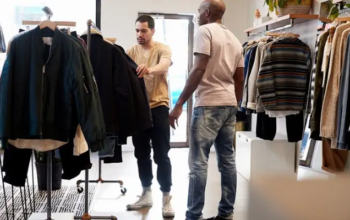Hair Styling in Pathankot
The Impact of Your Hair on Your Emotions
Introduction
Hair Styling in Pathankot has never been merely a biological characteristic. It has represented identity, status, and beauty throughout history. Hairstyles have always had a significant social and psychological impact, from the classic Cleopatra haircut to the Afros of the Civil Rights Movement. Today, we’ll delve into the intriguing field of hair psychology and examine the profound influence that hairstyles may have on our self-perception and emotions.
The Significance of Hair in History
An influential social and cultural emblem for ages has been hair. In many Native American tribes, hairstyle and length reflected tribal affiliation and personal accomplishments. In ancient Egypt, exquisite wigs were a prestige symbol. Tall powdered wigs were a common way for European aristocracy to flaunt their wealth and social standing in the 18th century. These historical illustrations highlight the significance of hair for both human expression and society structure.
Hair as an Extension of Identity
Our hair is an essential part of our physical appearance and a manifestation of who we are. Our choice of haircut can be a reflection of our political views, cultural background, and personal preferences. For example, in the 1960s, having long hair became a sign of defiance against the traditional standards of the day. Hair is still a means of self-expression in modern society, enabling people to convey aspects of their identities without using words.
The Science Behind Hair and Mood
An increasing number of scientific studies are looking into the relationship between mood and hair. According to psychologists, our appearance—including our hairstyle—can affect how confident and self-assured we feel about ourselves. We are inclined to feel better about ourselves overall when we are happy with the way our hair looks. On the other hand, a horrible hair day might make us feel bad about ourselves and our mood.
The “halo effect,” the idea that persons who are deemed handsome are also presumed to possess other favorable attributes, is responsible for the psychological impact of hair. A well-groomed hairdo can make a person look more appealing overall, which can improve social interactions and raise self-esteem.
The Role of Social Perception
The psychology of hair is heavily influenced by social perception. Our social experiences and, in turn, our mood might be influenced by how other people view us based solely on our hairdo. People who maintain well-groomed and polished hairstyles, for instance, could be seen as more capable and reliable, which could have a beneficial impact on their relationships in work environments.
Unconventional haircuts, however, can occasionally give rise to unfavorable opinions or stereotypes. In spite of this, a lot of people adopt distinctive hairstyles as a way to express themselves and feel empowered, defying standards set by society.
Personal Empowerment Through Hairstyling
Hairstyling can be a powerful tool for personal empowerment. Changing one’s hairstyle can be a transformative experience, symbolizing a new beginning or a significant life change. For instance, cutting one’s hair short after a breakup can represent a sense of liberation and a fresh start.
Moreover, experimenting with different hairstyles can be a fun and creative way to express individuality. Trying out new looks can boost selfconfidence and provide a sense of control over one’s appearance, contributing to overall wellbeing.
Hair Color and Its Psychological Effects
Hair color is another aspect of hairstyling that can have a profound psychological impact. Different hair colors are often associated with specific traits and stereotypes. For example, blondes are sometimes stereotyped as more funloving and carefree, while brunettes are perceived as serious and intelligent.
Changing hair color can also influence how we feel about ourselves. A dramatic color change can lead to increased attention and compliments, boosting selfesteem. Additionally, certain colors can evoke specific emotions; for instance, red is often associated with passion and energy, while blue hues can have a calming effect.
The Impact of Hair Care Routines
Regular hair care routines contribute significantly to how we feel about our hair and, by extension, ourselves. Maintaining healthy hair through proper care can enhance our appearance and boost our confidence. On the other hand, neglecting hair care can lead to issues such as hair damage and loss, which can negatively affect selfesteem.
The act of caring for one’s hair can also be a form of selfcare, providing a sense of routine and relaxation. Taking time to wash, style, and treat our hair can be a meditative practice, offering a break from daily stresses and contributing to a positive mood.
Conclusion
The connection between mood and hair is intricate and multidimensional. Our hairstyles have an impact on our identity, social interactions, and self-esteem in addition to being purely cosmetic. The psychological impacts of hair color and care practices, as well as the historical significance of hair, make it abundantly evident that our choice of hairstyle can have a significant influence on our self-perception and how others view us.
Knowing the psychology of hair enables us to recognize the more nuanced significance of the hairstyles we choose. Hair Styling in Pathankot is an important medium for self-expression and emotional health, whether we want to go bold or stick with our characteristic style. Therefore, the next time you find yourself staring at a mirror, keep in mind that your hairdo is a reflection of who you are on the inside and a key to unlocking a more self-assured, powerful version of yourself.
FAQs
1. How can changing my hairstyle affect my mood?
Changing your hairstyle can significantly impact your mood by boosting your selfesteem and confidence. A new look can symbolize a fresh start or a positive change in your life, helping you feel more empowered and in control. Additionally, receiving compliments and positive feedback on your new hairstyle can enhance your overall wellbeing.
2. Can hair color influence how I feel about myself?
Yes, hair color can influence your selfperception and emotions. Different hair colors can evoke specific feelings and associations. For example, vibrant colors like red can make you feel more energetic and bold, while softer shades like pastels can create a sense of calm and tranquility. Changing your hair color can also attract attention and compliments, further boosting your confidence and mood.
3. Why do bad hair days negatively affect my mood?
Bad hair days can negatively affect your mood because your appearance is closely tied to your selfesteem and confidence. When your hair doesn’t look the way you want it to, you might feel less attractive and selfassured, leading to lower overall mood and increased selfconsciousness. This can impact your social interactions and how you perceive yourself throughout the day.



